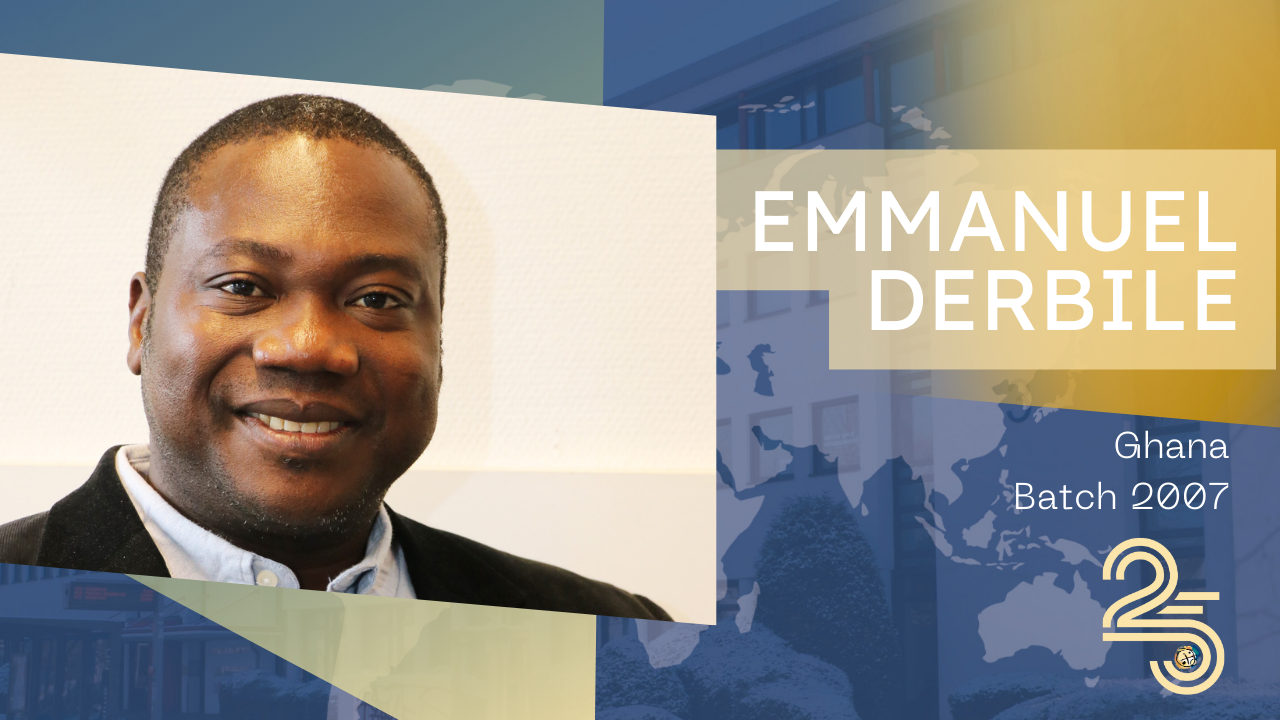Emmanuel K. Derbile completed his PhD at ZEF in 2010. But even today, his research findings remain relevant. He discovered that people in Northern Ghana use different knowledge systems to sustain their lives in tough environmental conditions.
“When it comes to promoting internationalization, the ZEF-led West African Center for Sustainable Rural Transformation (WAC-SRT) has been at the forefront in Ghana’s universities”.
Fact sheet
- Emmanuel Derbile comes from Ghana
- PhD at ZEF: 2007-2010
- PhD topic: Local Knowledge and Livelihood Sustainability under Environmental Change in Northern Ghana
- PhD funding agency: German Academic Exchange Service (DAAD)
- Supervisor: Professor Solvay Gerke
- Current position: Pro-Vice Chancellor Simon Diedong Dombo University of Business and Integrated Development Studies, Wa, Ghana
Brief portrait
Emmanuel K. Derbile completed his PhD at ZEF in 2010. But even today, his research findings remain relevant. He discovered that people in Northern Ghana use different knowledge systems to sustain their lives in tough environmental conditions. They integrate indigenous knowledge with formal education to survive. One key finding was that smallholder farmers often innovate using informal networks instead of relying on government support.
Dr. Derbile is now the Pro-Vice Chancellor at Simon Diedong Dombo University of Business and Integrated Development Studies in Ghana. He’s proud to lead the university’s restructuring, especially after it was transformed from a campus into a full university in 2019.
His interdisciplinary education at ZEF prepared him well for his career: access to diverse literature and interaction with professors and colleagues from various backgrounds helped him appreciate interdisciplinary research. “Interdisciplinary approaches are crucial for impactful research and education, especially in countries of the Global South“, Dr. Derbile says.
“But African higher education institutions face several challenges, particularly in funding research“, says Emmanuel and adds “so African governments need to prioritize research funding in order to bridge the gap between policy and research. We need more evidence-based policies and stronger collaboration between universities and governance”. He is confident that the gap can be bridged.
He’s impressed by the new generation of researchers, like those of the West African Centre for Sustainable Rural Transformation (WAC-SRT), who actively engage with society: “These students are a good example of how students and alumni have come together and seek ways for contributing to green development. This students’ initiative actually started at our partner University in Niamey in Niger. We’ve been very proud of what they’ve done. Through their own initiative they have raised funds to support needy communities and find ways of improving their livelihoods“.
The students also utilize social media, and work with NGOs to drive green development. Many alumni are making a significant impact in various sectors, demonstrating the value of interdisciplinary education and research in bringing about positive change.



Leave a Reply